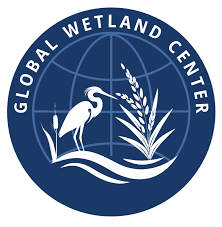Partnership between Climate AI Nordics and Global Wetland Center

We are excited to share our partnership with Global Wetland Center 🌍✨!
Read more on our partner page!

We are excited to share our partnership with Global Wetland Center 🌍✨!
Read more on our partner page!
Event date:
Webinar with Purnendu Sardar, Lund University. Accurate mapping of tree crops is vital for regional resource management, ecosystem service assessment, and the support of local livelihoods within the Syrian Arab Republic. Despite their socio-economic importance, tree crops are frequently misclassified or omitted in global and regional cropland products due to their complex spectral signatures and structural similarities to natural vegetation. This study proposes an integrated machine learning framework that combines the computational power of Google Earth Engine (GEE) with Python to enhance classification precision of tree crops across Syria. The methodology evaluates the integration of Global Ecosystem Dynamics Investigation (GEDI) LiDAR data with Sentinel-2 multi-spectral imagery to facilitate robust tree crop mapping. By utilizing GEE for the large-scale preprocessing of Sentinel-2 time-series data, the workflow generates high-dimensional, machine-learning-ready datasets that incorporate both structural and phenological variables. A Convolutional Neural Network (CNN) is subsequently trained in Python, chosen for its proficiency in processing time-series remote sensing data where temporal spectral patterns are more diagnostic than spatial textures. This approach allows the model to capture the distinct phenological cycles of various tree species, overcoming the limitations of traditional pixel-based or purely spatial classifiers. The findings underscore the efficacy of the CNN in distinguishing tree crop cover with high efficiency, demonstrating that the fusion of LiDAR-derived structural metrics with multi-temporal satellite data significantly reduces classification errors. The resulting high-resolution tree crop map provides an essential tool for sustainable agricultural planning and resource allocation in Syria.
Published:
RISE Research Institutes of Sweden is recruiting a PhD student to develop AI-driven approaches for recovering and reusing composite materials for energy applications, in collaboration with Swedish universities and industrial partners.
Published:
KTH Royal Institute of Technology is recruiting a PhD student to develop Earth observation–based indicators and machine learning models to improve forecasting of consecutive drought-to-flood events.
Published:
The Swedish University of Agricultural Sciences (SLU) is recruiting a tenure-track fellow to develop data-driven research in evolution and biodiversity, applying machine learning and computational methods to aquatic or terrestrial systems.